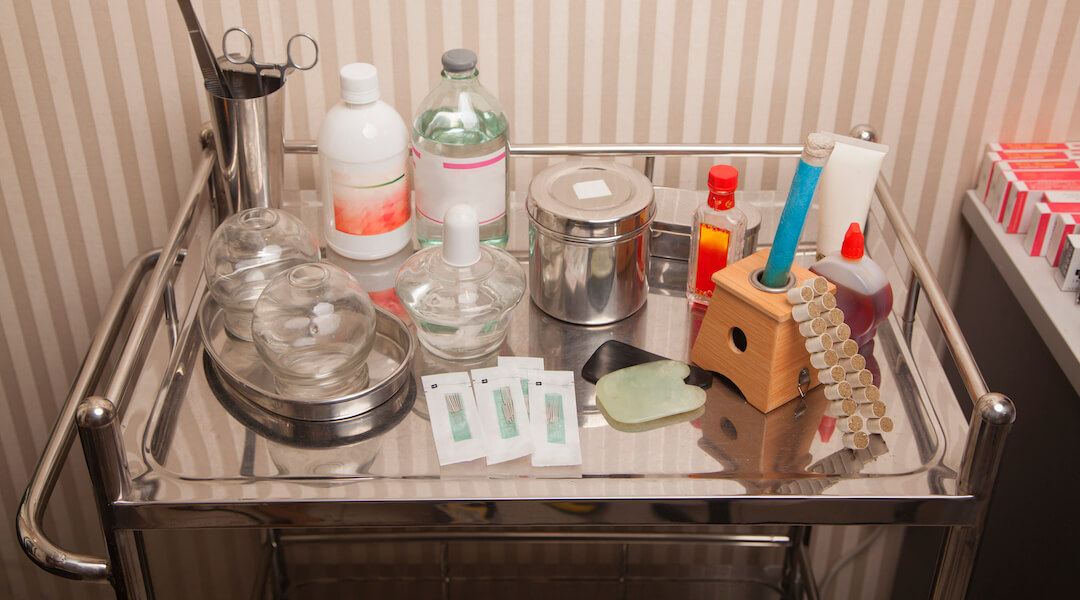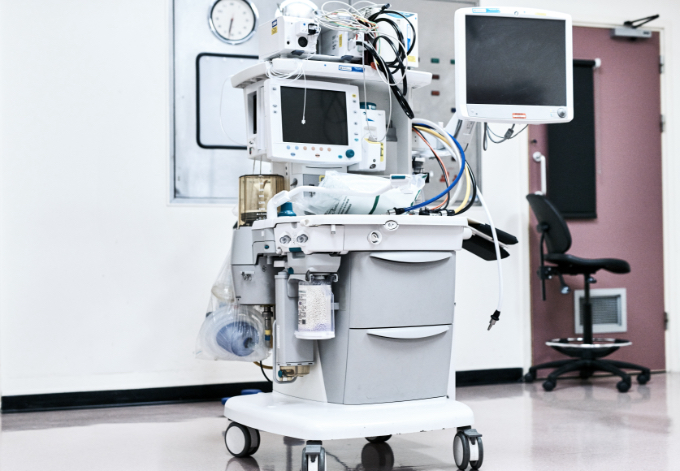Which Grades of Stainless Steel Are Used For Medical Instruments?

Stainless steel—is there anything more synonymous with metal fabrication and manufacturing?
It’s certainly a name that gets thrown around a lot, and for good reason. From cookware and kitchen appliances to industrial equipment and liquid storage tanks, stainless steel products are all around us.
If you’ve ever spent a significant amount of time in a hospital or clinic, then you’d know that these locations are certainly no exception. In fact, the medical industry is one of the largest global purchasers of stainless steel products, and considering the metal’s unique properties, this should come as no surprise.
WHY IS STAINLESS STEEL IDEAL FOR THE MEDICAL INDUSTRY?
When it comes to material standards, the medical industry has some of the strictest requirements to meet. Of course, it’s easy to see why when you consider that even the smallest infection caused by an inferior material could be the difference between life and death.
Stainless steel is corrosion-resistant
Stainless steel was designed from the ground up to resist rust. By introducing a small amount of chromium into the alloy, it’s able to create a thin film that protects against corrosion and can even self-heal in the presence of oxygen!
Stainless steel is easy to sanitize
Unlike copper, silver, and other heavy metals, stainless steel does not contain any natural antimicrobial properties. That said, what it lacks in self-cleaning ability, it more than makes up for in how simple it is to sterilize.
Stainless steel is incredibly durable
There’s a very good reason stainless steel is used in some of the toughest industries, from construction to aerospace engineering. It’s strong, heat-resistant, and highly dependable for the lifespan of any product.
WHAT IS THE DIFFERENCE BETWEEN STAINLESS STEEL AND SURGICAL STEEL?
While stainless steel of any kind is great for most industries, the medical world is a bit more demanding. Only the most corrosion-resistant grades—known as surgical stainless steel—will qualify.
Not surprisingly, surgical steel is significantly more expensive than traditional stainless. Because of this, it is typically reserved for use in surgical or biomedical applications where the risk of infection is the highest.
Unfortunately, there is no formal definition of what constitutes surgical stainless steel, so there is a bit of inconsistency amongst manufacturers and distributors. That said, there are several grades of stainless steel that are commonly accepted to be of surgical quality.
WHAT ARE THE MOST COMMON GRADES OF MEDICAL STAINLESS STEEL?
In the medical industry, there are specific grades of stainless steel that are far more heavily used than others. These grades are based on a standard alloy numbering system that is rated and maintained by a group known as SAE International.
The following four grades see the most use across all types of medical tools, instruments, and furnishings.
· SAE 304: By far the most used stainless-steel grade today, it contains between 18-20% chromium and 8-10.5% nickel. Outside of the United States, it is more commonly known as A2 Stainless Steel.
· SAE 316L: As the second most common grade, it consists of 16-18% chromium and 10-12% nickel. It’s also referred to as marine-grade stainless steel due to its increased resistance to chloride corrosion.
· SAE 410: This more general-purpose stainless steel has chromium percentages ranging from 11.5-13.5%. While less corrosion-resistant than others on this list, it does offer much higher strength in exchange.
· SAE 420: This high-carbon grade can be easily hardened and polished. Containing anywhere from 12-14% chromium, it is the benchmark for what is commonly referred to as cutlery grade.
WHAT MEDICAL INSTRUMENTS AND EQUIPMENT USE STAINLESS STEEL?
Stainless steel is used in a wide range of medical applications, from the smallest scalpels to the largest sterilizing machines. This can include but is not limited to:
· Medical carts and trays
· Cabinets and surfaces
· Hospital beds
· Wheelchairs
· Canes and walkers
· Sinks and bowls
· IV stands
· Surgical tools (scalpels, scissors, clamps, etc.)
· Medical syringes and needles
· Surgical screws and plates
· Hazardous waste containers
· Catheters and precision tubing
LAKE AIR IS THE MEDICAL COMPONENT FABRICATOR YOU CAN TRUST
Whether you need a run-of-the-mill medical storage cart or a highly advanced scanning machine, Lake Air is your ideal metal fabrication partner. Our medical and life science industry expertise and state-of-the-art equipment enable us to produce tight tolerance components and full assemblies for whatever instruments and equipment you’re looking to build.
Where other fabricators fail, Lake Air Products can manufacture the difficult and complicated parts and chassis your medical equipment needs, all with superior precision and repeatability. Give us a call today to discuss your next project and experience the difference a long-term partnership with Lake Air can make for your business.
